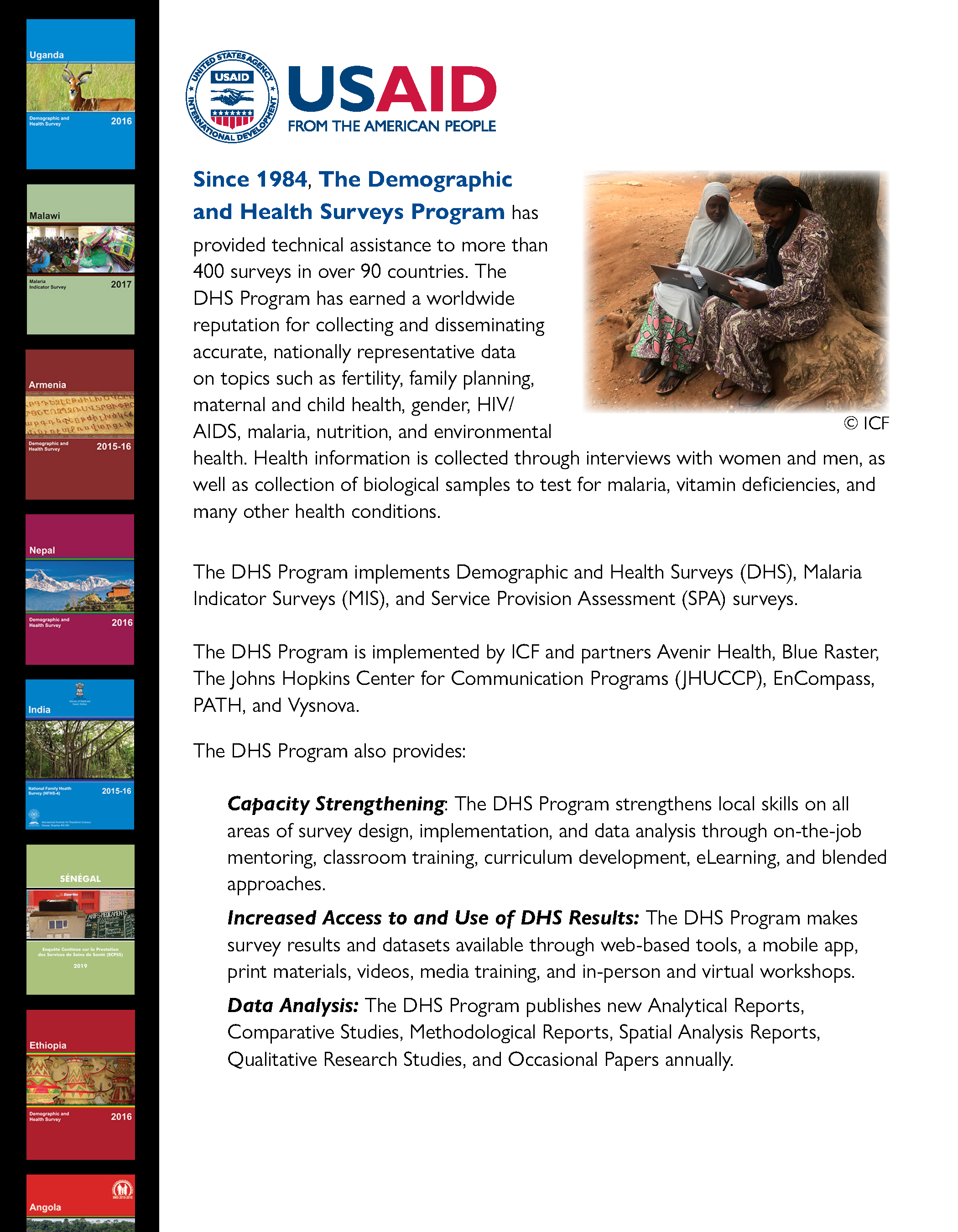Press Releases
Measuring Progress: USAID’s Enduring Support for Data-Driven Development Continues in Ninth Round of The DHS Program
Rockville, Maryland
ICF, a global consulting and technology services provider, was awarded a re-compete contract by the United States Agency for International Development (USAID) to continue to implement The Demographic and Health Surveys (DHS) Program. The contract, which was awarded by the Bureau for Global Health, has a contract value of over $236 million and a term of five years. A follow-on to the World Fertility Surveys and Contraceptive Prevalence Surveys, USAID launched The DHS Program in 1984, which has provided technical assistance for more than 450 surveys in over 90 countries.
The DHS Program collaborates with survey implementers, national governments, and international organizations to collect, analyze, and disseminate accurate and representative demographic and health data in countries worldwide. ICF is the prime contractor and will continue to partner with internationally experienced organizations Johns Hopkins Center for Communication Programs, EnCompass, Avenir Health, Blue Raster, and PATH to deliver high-quality technical assistance.
In this ninth round of The DHS Program contract (DHS-9), two new partners join the consortium.
The Institute for Demographic Training and Research (Institut de Formation et de Recherche Demographiques, IFORD), with offices in Cameroon, will support survey implementers to improve data collection and tabulation and strengthen local capacity for data analysis.
The African Institute for Development Policy (AFIDEP), with offices in Malawi and Kenya, will equip policy makers and researchers to access and use DHS Program data to plan, manage, and evaluate health policies and programs.
The DHS Program will continue to innovate to collect high-quality population, health, and nutrition data that respond to local, national, and global needs. In DHS-9, The DHS Program is expected to support about 70 population-based and facility-based surveys in more than 50 countries, providing a trusted and transparent evidence base to improve health and well-being worldwide. Localization and capacity strengthening remain key elements of DHS-9, while expanding gender and climate-related analyses to meet emerging data needs.
For four decades, The DHS Program has been an exemplar of international cooperation and transparent data governance. The DHS Program would not be possible without the millions of survey participants who have responded to DHS Program questionnaires, the hundreds of thousands of local staff who implement surveys despite challenging conditions, and the unwavering support of USAID.
